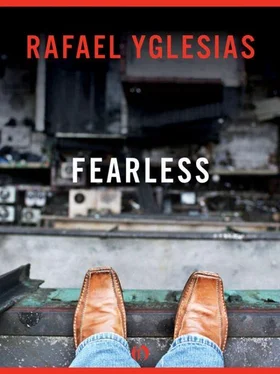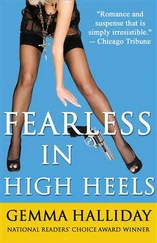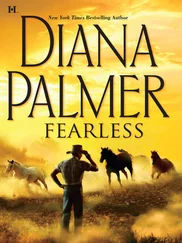“What about my question?” she turned back, put her hands behind her, springing off the wall. She rocked on her toes and then back on her heels until she fell against the wall, only to repeat the process with another shove of her hands. It was a girlish and pretty nervousness. “Are you going to talk to a therapist? You know, your lawyer says—” she stopped herself, both the talking and the bouncing off the wall.
“What does Brillstein say?” Max prompted. He thought he knew.
“Answer my question first. Will you talk to somebody?”
“Let’s get divorced. Then you don’t have to concern yourself with whether I’m crazy or not.”
“Why don’t you trust me?” Debby said. Her hands went out in spasm, without grace. “What have I done to you that you don’t trust me?”
“I trust you,” Max lied. It was a necessary lie, perhaps even a truthful lie, but it was the kind of untruth he had given up and it hurt — actually hurt: his head throbbed — to resort to it. Yet he had to. He was in danger from her; and probably from others who believed they loved him. She had almost revealed the jeopardy and instead revealed her guilt. Max tried to sound harmless: “Bring Jonah in for a moment and you’ll see.” At least he wouldn’t have to tell any lies to his son.
While she was gone he checked the small personal phone book Debby had brought him to see if Brillstein’s number was written down. It was. He had to squint to see the numbers clearly.
Jonah came in reluctantly, made even more nervous by an official summons. Earlier he had fidgeted in a chair, averting his eyes from Max’s still bruised face. This time Jonah clung to his mother’s side, head tilted, looking at some point in between the floor and his father.
“Jonah…” Max reached for him with his left hand.
Debby urged him forward. Jonah abruptly rushed to Max and took the offered hand. He bowed his head, staring at the sheets.
As his hand swallowed the small one Max noticed Jonah’s nails were dirty. He squeezed the limp fingers and said, “Did you think I wanted to die?”
Jonah shook his head no and gulped; he didn’t speak; to Max that was a yes.
“I don’t.” Max raised the enclosed hand and shook it. “Look at me.”
Jonah’s face came up. Max was momentarily silenced by their calm and naive concentration. Jonah’s two light brown eyes (the same shade as his mother’s) watched and waited for his history to begin.
“I don’t just happen to be your father,” Max said. “I want to be your father.” Jonah’s eyes stayed open and focused on Max, although water brimmed at the lower lids. “That means I don’t want to die. You can’t lose me because I don’t want to be lost.” He let go of the small hand.
Jonah stayed his ground, looking fully at his father’s swollen face. The child’s tearful eyes dried up; and after a moment, along with their blank and vulnerable attentiveness, there was a glint of armor.
Max’s mother was next to come with a grievance. He had known she was angry at him from the brevity of her earlier visits. Moments after Debby and Jonah left (they must have coordinated these attacks) his mother entered and dragged the plastic visitor’s chair over to the left side of his bed. She sat down with a firm drop as if she planned to stay for a while. He was glad she had come so close to him; he could see her well from there. “Max,” she said energetically and patted his hand, “everyone says I shouldn’t bring this up. Your sister especially — that’s why I’m here alone. But I think maybe there are a few things a mother knows about her children that even the experts don’t.” There it was again — the hint of discussions with psychologists about his condition. Was it Perlman and Mayer, or just one of them, or others he didn’t know? He wanted to phone Brillstein urgently. He was sure he could see through the lawyer to whatever was their secret plan.
“Really?” Max answered. “When I was a teenager it always seemed to me mothers were the easiest people to fool. Freddy, Andy, Barry and me, we could come in stoned out of our minds, tell you we hadn’t gotten enough sleep and you’d buy it.”
She squinted at him, annoyed. After a moment she slapped his hand. “Don’t be a wise guy,” she said.
“You were fooled because you wanted to be fooled, Mom. I didn’t mean you were gullible.”
“We didn’t know about drugs, that’s all. It never occurred to us. If you had had extra money I’d have known you were a thief. If you had had bruises I’d have known you were in a gang. If you had thrown up your breakfast, I’d have known you were drinking. I could smell the cigarettes on your clothes. But bloodshot eyes? I thought you’d been up all night listening to rock music.”
Max smiled at her old face. He remembered the shameful secrecy of adolescence, moving his pornography and cigarettes from one drawer to another, rotating them away from her searches. She had found them anyway. “You’re right, Mom. You were no fool.”
“Why did you send that thing to me?”
“What thing?”
“You know—” she winced. She lowered her eyes. They were still young despite the wrinkles around them. They sparkled with humor and curiosity — and pain. “You know what I’m talking about. Why did you send that box of tools to me?”
He had forgotten about the gift buying. That belonged somewhere in the smashed part of his brain. He thought about it before answering. He remembered the nervous salesman copying the address. He had had to send the gift to his father. Where did his father live but with his mother? “You didn’t look at the card.”
“I looked. That was crazy and it hurt me. But I don’t believe you meant it. It was sent to me . You were sending me some kind of message.” She tapped his hand again. “Just tell me what you want to say to me, Max. ”
“I wanted to buy Dad a gift. You know I never got to buy him anything.” She turned away from this answer, wounded, ready to walk out. He continued, “Where could I send it? To his grave?” She looked back at him. Her young eyes wavered in their crinkled settings. “I bought the toolbox for my living father,” Max went on. “And where does my father live? With you. His picture — that picture where he’s ten years younger than I am — is still on your living room wall, and there’s another beside your bed. You haven’t remarried, you haven’t forgotten. He’s still alive in your house. If I want to give a gift to my father I have to send it to you.”
Her eyes searched him. They went back and forth across his face, in no hurry. She expected him to wait until she had finished her search, just as she used to while interrogating him for confessions of adolescent debauchery. “You’re not crazy,” she mumbled.
“No,” Max said and he gently slapped her hand.
She laughed. Her eyes teared up suddenly. She reached for her purse. She opened it fast, found a tissue, and blew her nose. With that done she looked at him: “Don’t ever do that again. You want to buy something for your father? Do what I do. Make a donation in his name to your favorite charity.”
“That wasn’t the idea—”
“I don’t care about your ideas!” She got up. “Don’t do that to me again.”
“Why didn’t you remarry?” Max shot this past all the sentinels that had always halted the question before it could be given a voice.
It was a shot that stopped her in her tracks. “Nobody asked,” she said.
“Come on, Mom. Did you love him that much? Was he that perfect?”
She smirked. It was a private amused twist of her curvy lips — almost mischievous. “I had two children, I was almost middle-aged. I wasn’t much of a prize.”
Max felt bound by his hospital bed. Its thin sheet was drawn taut across his stomach by the nurse’s overzealous bedmaking. He pushed at it with his belly and pulled at its edges with his hands, but remained trapped. He wanted to get up, in spite of his aching head. His mother came over and pulled them away. “What are you doing, Max?” she asked. “You want to get up?”
Читать дальше












